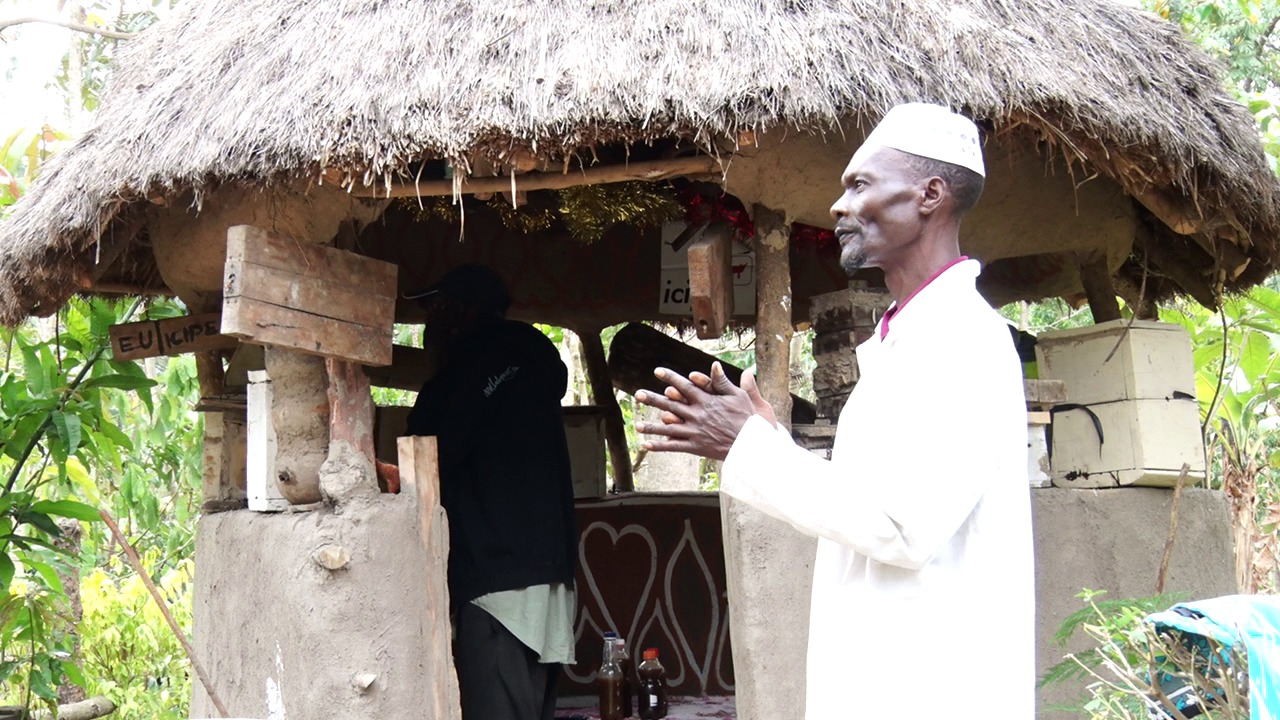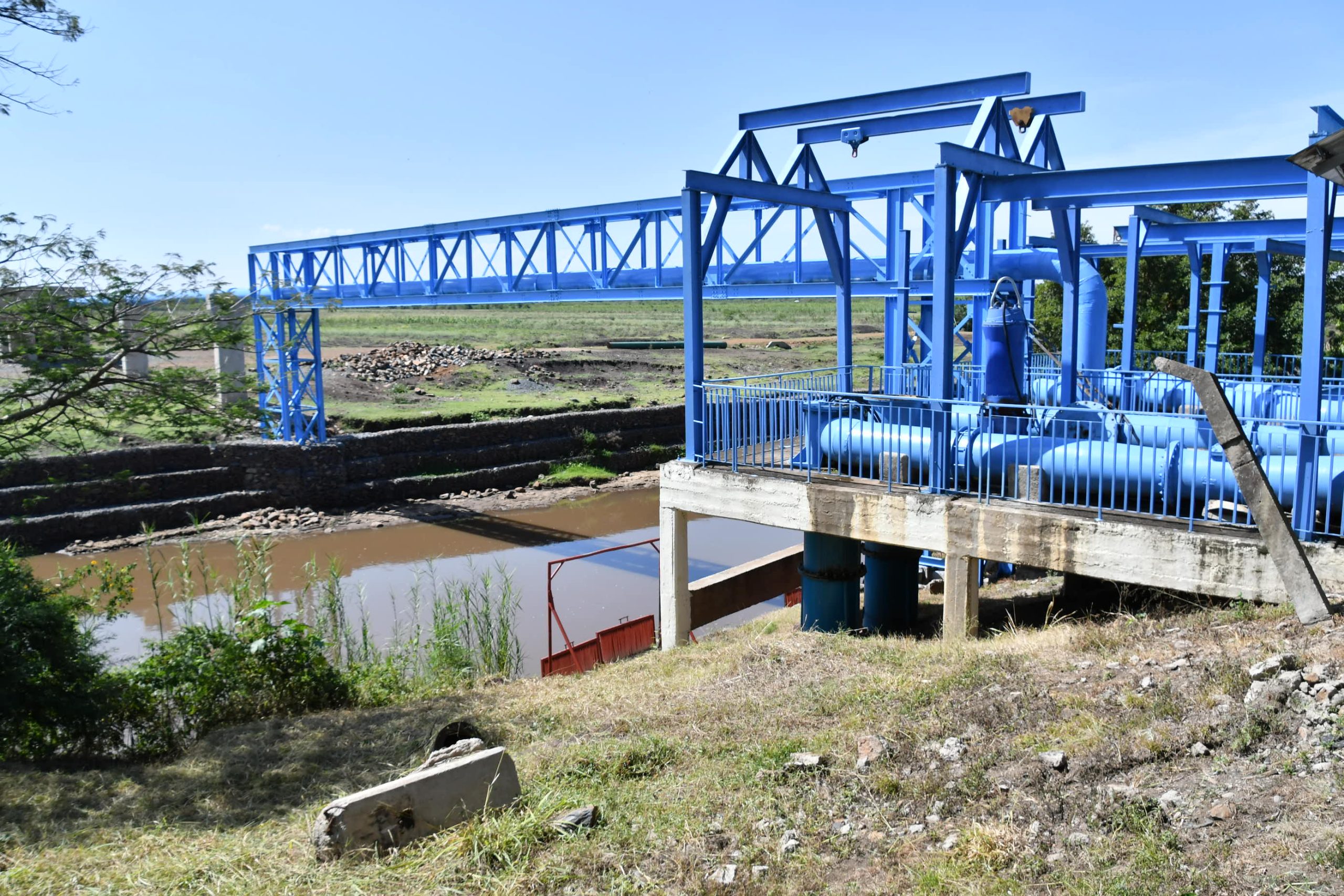Youth from Arid and Semi-Arid areas (ASALs), have been challenged to venture into farming by using Climate Smart Agriculture, aimed at creating job opportunities.
Ms Julie Nyambura, a geranium farmer in Laikipia County speaking to Kenya News Agency at her farm in Mukogondo East, Laikipia North Sub-county, said youths should not concentrate on looking for white collar job which are limited, but rather practice agriculture by use of modern technologies, which help farmers get maximum yields.
Geranium is a perennial shrub, due to its scented nature, is used for making essential oils (external body oils) and other beauty products.
“Jobs are there but no workers, when youths engage in farming by using Climate Smart Agriculture, they will get a lot of money,” said the 28-year-old farmer, adding there is high market demand for geranium products.
Ms. Nyambura who has been practicing geranium farming for several months, said it’s a venture she can’t regret due to good returns. She revealed that geranium plant is drought resistant and since their area is inhabited by wild animals, geranium was ideal because it drives wild animals away due its repellent scent.
Ms Nyambura noted, she is chairlady of Kapron Women Self-Help Group (SHG), which has 17 geranium farmers adding: “I coordinate with other farmers and whenever they need seedlings, I link them with the sellers. Geranium is very profitable, a kilogram of geranium retail at Sh12.5,” she revealed.
Nyambura said, geranium matures after seven months and being a perennial crop, it can be harvested quarterly for a period of up to five years.
Nyambura who has been working closely with the Women UN project on economic empowerment through Climate Smart Agriculture (CSA) in Arid and Semi-Arid areas, divulged, they have been trained on how to successfully employ CSA technology in the area, thus reaping good yield from the geranium crop.
Further, she said the Non-governmental organization trained the women on climate change adaptation, rangeland rehabilitation and management, soil and water management among other areas, noting her first harvest was in February this year, where she pocketed Sh.33, 000 from her quarter acre. She expects to sell her next production in June and September respectively.
The farmer said all the members in her Kapron group have a ready market since they have an existing contract with Fair Oils Company Ltd, situated in Nanyuki and expressed optimism that in future she will lease huge chunks of land for planting geranium and other perennial crops, that require less capital, are pests’ resistance and are easy to manage.
Fair Oils Ltd Manager, David Kariuki, who has partnered with the Kapron Women SHG in farming and marketing the geranium said there are only 2,500 farmers in the region.
“This crop requires little labour to grow and the reason for us introducing it, is because there have been instances of crop failure due to unreliable rainfall,” said Kairuki, adding they first introduced geranium to farmers in 2,017 and the growth has been gradual.
Kariuki noted, it was also a form of diversification for farmers to generate more income noting farmers incur only labour since the company provides transport and seedlings at a subsidized rate with farmers paying for the same after every harvest.
The manager who doubles up as an agronomist reveals an acre can produce between eight to 10 tonnes per harvest adding geranium is organic and doesn’t require fertilizers to boost growth nor does the crop require pesticides.
He revealed to cut on brokers, they have an abiding contract with the farmers to pay them through mobile banking after every harvest explaining that they process geranium for the export market.
The fair oils manager said they had partnered with the government on advocating for environmental conservation through tree planting and water conservation exercises in dry areas saying geranium has not widely spread. He said currently it is only being grown in the leeward side of Mount Kenya including Chaka and Timau in .Nyeri and Meru counties respectively.
He said they have also introduced other perennial crops including tea trees, rosemary and Kenya cypress as a form of crop diversification.


